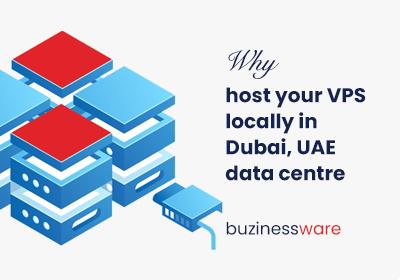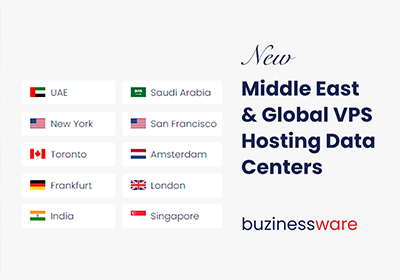Resell Servers in Middle East
Sell Cloud, Virtual & Dedicated Servers from multiple Data Centers to your customers
Managed Multi-Cloud Servers
buzinessware [UAE]
Sell 100% hands-free Managed Cloud Hosting Servers in Dubai, UAE Data Center

Sell DigitalOcean Cloud Hosting Servers across multiple regions with 100% hands-free managed experience

Sell AWS Cloud Hosting Servers across multiple regions with 100% hands-free managed experience
buzinessware [KSA]
Sell 100% hands-free Managed Cloud Hosting Servers in Saudi Arabia Data Center
Virtual Private Server (VPS)
Sell budget-friendly VPS or regional VPS in 10+ countries with multiple Server Management Levels to your customers
UAE
Saudi Arabia
New York
San Francisco
Toronto
Amsterdam
Frankfurt
London
India
Singapore
Dedicated Infrastructure
Dedicated Server
Sell Powerfull Dedicated Server physicaly located in Dubai, UAE Data Center
Colocation
Colocate your infrastructure in Dubai, UAE Data Center
Server Management Services
Get your customer’s AWS, Azure, Google Cloud or on-premise servers managed.
Host your customer’s website in Middle East and get
20X FASTER
SPEED
24/7/365 LOCAL
SUPPORT
RANK HIGHER
IN SEARCH ENGINE
IN-COUNTRY
DATA COMPLIANCE
All the tools you need to start a web hosting business today
01 Online Reseller
Get integrated customer management
software & store to sell online
Your Storefront is your Customer’s gateway to purchasing the products you sell
Ready to deploy white-labelled storefront for your Reseller Business, to get you started within 2-minutes. With built-in coupon engine & payment gateways, offer your customers promotions and an easy shopping experience, with integrated hosting packages and email marketing platform to promote domains & hosting solutions to your customers
- Choose What You Sell
- Pre-created Templates
- Fully Branded E-Commerce
- Invoicing & Billing Feature
- Create Custom Coupons
- 24×7 StoreFront Support
- Integrated hosting packages to start selling hosting instantly
- Promote domains, hosting & security services to your customers through email marketing platform

02 Offline Reseller
You buy from us as our customer with
volume Rebates
A powerful, user-friendly & custom-built interface that automates your business
One click features to manage all your orders through a single interface
03 API Reseller
Get seamless provisioning
A platform independent API that is the Easiest to use in the Entire Industry
Control all your buying and management functions through Reseller API, with secure HTTPS connections and super easy configuration process. Connect with our Reseller Program API Specialists to get the maximum out of your reseller
- Unlimited API Requests
- Fully Secure
- Set Your Own Pricing
- WHMCS Integration
- Select What You Sell
- Dedicated API Specialists

Simple
Integration
Enable API
Gain Access to our HTTP libraries & integration documentation. Avail our dedicated assistance
Test in SandBox
Test your API calls on our Sandbox environment, and be ready to launch with support of our team
Production Environment
Start selling through the API calls, enabling your current website with our products
Sell Servers with Buzinessware Managed Experience
By default, we provide self-managed Servers and provide users the flexibility to choose from multiple server management levels as per their business needsCompare Server Management Levels
Once you select your VPS, you can choose your desired Server Management Level at checkout
Self Managed
Included
Managed
Included in Multi-Cloud Servers
Managed Pro
Add-on
MANAGED ONBOARDING
SERVICE MANAGEMENT
MANAGED SECURITY
MANAGED BACKUP & RECOVERY
Buy Now
Buy Now
(50 GB Storage included) (You can upgrade storage after initial setup)
Support
Moderate :- Server is up and some services are down
Minimal :- Server and services are up. Other requests
Moderate: 8 hours
Minimal: 12 hours
Moderate: 4 hours
Minimal: 8 hours
Moderate: 2 hours
Minimal: 4 hours
Tickets
Tickets
Live Chat
Tickets
Live Chat
Phone
AUDITS & REPORTING
Boosting Revenue and Scalability: The Benefits of Resell Servers in the Middle East
Resell servers, also known as reseller hosting, can offer various benefits in the Middle East, where the demand for web hosting services is rapidly growing due to the region’s increasing digitalization and online business presence. Here are the key benefits:
Revenue Generation
Resell servers provide an opportunity for entrepreneurs and small businesses to generate revenue by offering web hosting services to clients without the need for substantial infrastructure investments. By purchasing hosting resources from a larger provider and reselling them, resellers can earn profits from subscriptions or hosting fees.
Cost-Efficiency
Reseller hosting can be a cost-effective solution for both the reseller and the end customers. Resellers benefit from bulk buying resources from a primary hosting provider at lower prices, while their customers often receive more affordable hosting packages tailored to local market needs.
Localized Hosting Services
The Middle East has unique language and cultural requirements. Resell servers allow providers to cater specifically to these needs by offering customized solutions in Arabic and local dialects. Local businesses can also benefit from hosting their data closer to their customer base, reducing latency and improving website performance.
Scalability
Reseller hosting allows easy scalability as businesses grow. Entrepreneurs can start small and gradually expand their services as their client base increases. This scalability helps small businesses or IT consultants who may not initially have the resources to invest in large-scale infrastructure but can grow steadily with demand.
Custom Branding
Resell server providers often allow resellers to use their own branding. This means companies can offer hosting services under their own brand name, adding to their portfolio of services. This can enhance brand recognition and loyalty without the need for building data centers or hiring large technical teams.
Control Over Clients’ Accounts
Reseller hosting platforms typically come with management tools like cPanel or WHM (Web Host Manager), which allow resellers to control and manage client accounts easily. They can offer different plans, assign resources, and manage billing without needing to handle server maintenance or support issues directly.
Support from Parent Host
Most reseller hosting plans come with backend support from the main hosting provider. This means resellers do not need to worry about server maintenance, security updates, or troubleshooting technical issues, as the parent hosting provider handles these tasks. This allows the reseller to focus on growing their customer base and managing client relationships.
Increased Demand Due to Growth of Digitalization
Countries in the Middle East, such as the UAE, Saudi Arabia, and Qatar, are rapidly growing their digital infrastructure. The increasing number of startups, e-commerce platforms, and SMEs makes reseller hosting an attractive option to meet the expanding need for affordable and scalable web hosting services in the region.
Localized Data Security and Compliance
Data security regulations are becoming stricter across the Middle East, with some countries enforcing data residency requirements. Resellers offering hosting services within the region can provide clients with assurances about data localization and compliance with local laws, which is important for sectors like finance, healthcare, and government.
Flexibility in Service Offerings
Resellers can package and sell a variety of services beyond hosting, such as domain registration, email hosting, and website maintenance. This flexibility allows resellers to cater to different market segments and offer tailored solutions for small businesses, bloggers, or enterprise clients.
In summary, resell servers in the Middle East offer cost-effective, scalable, and customizable hosting solutions, which can be a lucrative business model for entrepreneurs. It also enables local businesses to meet growing demand for digital services while complying with regional requirements.
10,000+ hppy customers trust us

“Great Service, very reliable. Been working with European based service providers, and comparatively, found BW to be far ahead in terms of customer service and prompt response. Love the 24 hour availability. Keep it up guys”

“We recently upgrade our server with BW and very happy with the process and whole up gradation dose not impact our daily work routine as they ask you for the best time to make such changes. GOOD JOB”

“I appreciate your quick response and follow up on the issue until it resolves. Thanks for the best professional assistance as expected. Excellent 24/7 customer support and very much supportive and friendly staff. That makes this company the first choice for cloud hosting in UAE”

“Number one hosting & services in UAE. I’ve been customer and dealing with them since 2016. Amazing and fast responding from the support team fast and quick help from the team Jayesh help more and follow up with me step by step till solve the issue in 20 min Thank you Best Team Buzinessware FZCO Dubai”






